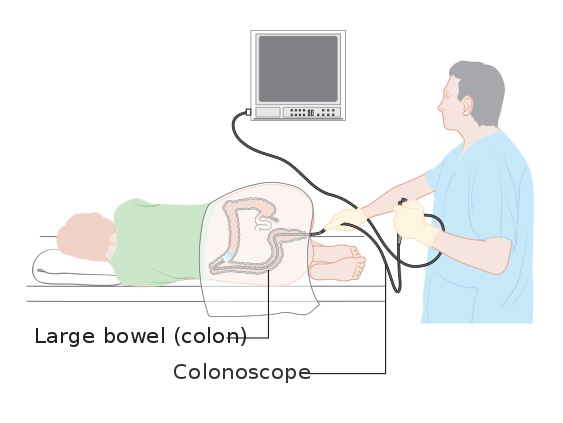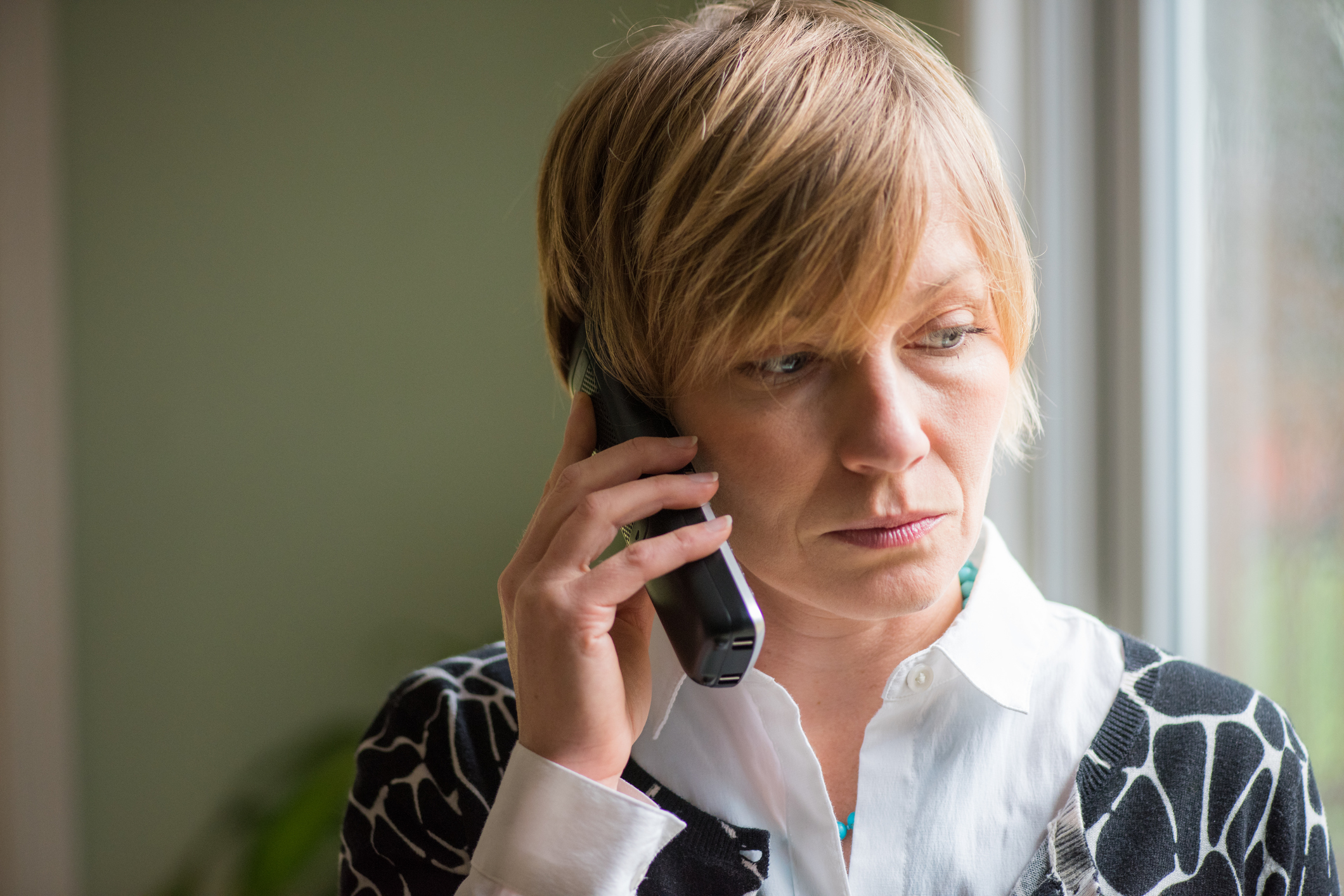Colonoscopy
A colonoscopy is an examination of your large bowel.

Image courtesy of CRUK/Wikimedia Commons
A colonoscopy is an examination of your large bowel. The doctor does the examination by putting a thin flexible tube with a small camera and light on it (colonscope) into your back passage and along your bowel.
It is a day procedure (you do not need to stay in hospital overnight).
Before the test
You need to have an empty bowel for the test. You will be given a medicine to drink regularly before the test to clear out your bowels. You will also have to fast (not eat) and not drink for a time before the test. The hospital will give you information on exactly what to do.
You may need to stop taking certain medications before the colonoscopy. Your hospital will let you know if you need to stop taking any medications.
Will I have pain relief/anaesthetic?
You may have a sedative just before the test to help you relax.
During the test
You will lie on your side and your doctor will put the colonoscope (thin flexible tube) into your back passage. A light inside the tube helps your doctor to see any abnormal areas or swellings. Photos and samples of your bowel can be taken.
Does it hurt?
It may be a little uncomfortable having the tube in your back passage.
After the test
Once the sedation wears off, you can go home. Make sure you arrange for someone to take you home as you’re not allowed to drive for 24 hours after a sedative.
CT colonography – virtual colonoscopy
In some hospitals you may be offered a CT colonoscopy. This builds up a detailed picture of the tissues inside your bowel.
Before the test
You need an empty bowel for this test to be performed. You will need to take strong medication to empty your bowels the day before the test. Your hosital will advise you about this.
During the test
Your doctor puts a tube into your back passage and pumps in air or carbon dioxide to give a clearer picture. Then two CT scans are taken: one while you are lying on your back and the other on your front. You may be asked to hold your breath during the scan. The computer then matches up the two scans to make a 3D picture of your bowel. This is a ‘virtual’ picture.
Colonoscopy video
Cancer Research UK has a very helpful video on this.
Related links



Talk to a Cancer Nurse

Support Line
Our Daffodil Centres

